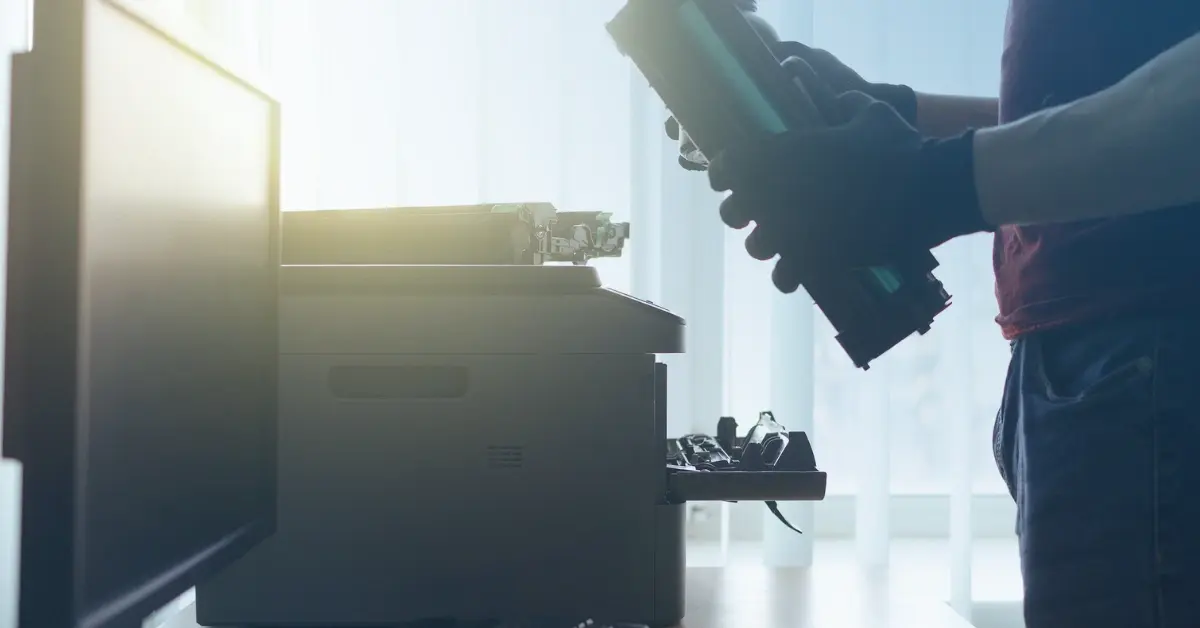Uncover the Risks of Unsecured Check Stock in the Education Industry

In the vast and ever-evolving world of education, even the smallest oversight can have far-reaching consequences for students, educators, and non-academic staff that keep institutions functional. Much like the hidden dangers lurking beneath the surface as exemplified by Shark Week, the use of unsecure check stock is an oversight that may result in grave financial consequences for the education industry.
This blog post will dive deep into the parallel between these potential hazards and shed light on the importance of ensuring the security of check stock to safeguard the finances and reputation of educational institutions. Join us on this journey to uncover the hidden dangers and explore how the TROY Group's commitment to reveal the shark in the shadows aligns with securing educational institutions from financial risks.
The Use of Checks in the Education Industry
The education industry, as a vital pillar of society, handles vast amounts of financial transactions daily. From paying employees to managing student fees, schools and educational institutions must maintain robust systems that guarantee financial integrity. Today, the education industry relies on the use of checks to issue payments to its employees, suppliers, and to make refunds according to its financial obligations. However, the use of unsecure check stock undermines the industry’s payment processes and exposes educational institutions to potential risks and threats.
For example, statistics show that the education industry loses approximately $70 million annually to fraud. The culprits for this financial loss include student loan fraud, identity theft, phishing attacks, and ransomware. Here, it is important to note that the use of unsecured check stock provides loopholes that can be exploited to execute identity theft and student loan fraud through check manipulation and washing. Hence, to protect checks from manipulation, we have outlined the hidden dangers associated with unsecured check stock.
Unveiling the Hidden Dangers of Unsecured Check Stock
Just as sharks silently prowl beneath the ocean's surface, so too do the hidden dangers of using unsecure check stock lurk within the educational ecosystem. Unsecure check stock refers to checks that lack adequate security features, such as watermarks, holograms, or embedded security fibers. These vulnerabilities come with specific loopholes that can be exploited such as:
- The use of generic watermarks and designs makes your check stock susceptible to forgery.
- Unsecured check stock without embedded security fibers can be manipulated and washed.
- Unsecured check stock may be stolen, and any personal information retrieved to execute identity theft and other financial scams.
- Unsecured check stock provides fertile ground for counterfeiters looking to alter payment amounts and destinations for themselves.
The Ripple Effect: Economic and Reputational Consequences
Much like the ripple effect created by a shark swimming beneath the ocean's surface, the implications of using unsecure check stock in the education industry extend far beyond the initial criminal incident. The economic and reputational consequences can be severe and long-lasting.
The misappropriation of funds or the occurrence of fraudulent activities can disrupt the smooth functioning of educational institutions, jeopardizing student services, and compromising the quality of education. Moreover, news of financial misconduct or security breaches can erode public trust, tarnish an institution's reputation, and even impact enrollment rates. By exploring real-life examples, this section will illustrate the potential magnitude of these consequences.
In 2022, Richard, 64, stumbled upon a federal aid check in his mail for a Pell Grant of $1,400 to attend Saddleback College in Orange County. Obviously, he had never applied to the college nor heard about it until that day. Unknown to him and the educational institution, fraudsters had stolen his identity, used it to apply to the university and received a legitimate check. The fraudsters intended to wash the legitimate unsecured check, change its details, and cash it out at their local store or bank.
Another example was the manipulation of checks by employees of Corinthian College to steal loans and payments to low-income students. In this scenario, access to unsecured check stock allowed employees to manipulate the institution’s payment systems to divert funds. In both cases, although there were financial losses, the reputational loss and embarrassment caused by these incidents were more substantial. For Corinthian College, the fraudulent incidents led to the collapse of the institution and for Saddleback College, an extensive overhaul of its application process was initiated.
Safeguarding Education Institutions: The TROY Group's Solution
Just as Shark Week aims to reveal the hidden dangers beneath the ocean's surface, the TROY Group stands at the forefront of ensuring the security of educational institutions against the risks associated with unsecured check stock. This section will shed light on the TROY Group's commitment to innovative anti-tamper technology and secure check printing solutions. From high-security check stock with built-in security features to secure printing software and hardware, the TROY Group provides comprehensive solutions designed to mitigate the risks schools and educational institutions face. These solutions include:
- MICR Toners: The use of MICR technology to protect checks from manipulation has become the standard for the financial industry. TROY Group’s MICR ink is developed with fraud-resistant features that produce red-dyes if any attempt to wash a check is made. The anti-tamper technology used also integrates the use of magnetic strips which can be read to ensure the integrity of issued checks.
- MICR Printers: MICR printers enable educational institutions to secure printed checks right from the printing process. TROY Group MICR printers print checks integrated with MICR lines using MICR toners to secure your checks. TROY Group printers also provide additional security features such as lock trays to protect against unauthorized printing access and to guard check stock from internal fraudulent activities just like in the case of Corinthian College.
- AssurePay Cloud Software: The turnkey check printing software from TROY Group provides education institutes with a centralized digital platform for printing checks, authorizing them, and tracking their delivery. Using AssurePay, your institution can integrate diverse security features such as watermarks, lines, and internal design patterns to ensure the originality of checks. AssurePay also provides extensive user authentication to ensure only authorized individuals have access to check design and digital stock thus enabling accountability.
Implementing Best Practices and Creating Awareness
Ensuring the financial security of educational institutions requires a multi-faceted approach. Alongside the use of secure printing processes and technologies, regularly updating security features, educating staff on fraud prevention, and employing check verification systems will help reduce fraud. Additionally, an emphasis on awareness and sharing best practices within the education industry can contribute to a collective effort in protecting schools, colleges, and universities from the hidden dangers of unsecure check stock.
In conclusion, the parallels between the hidden dangers lurking in the water during Shark Week and the unsecure check stock risks in the education industry are undeniable. Just as sharks can wreak havoc if underestimated or ignored, unsecure check stock leaves educational institutions vulnerable to fraud, financial mismanagement, and reputational damage. By understanding the risks and adopting secure check printing solutions, such as those provided by the TROY Group, schools and educational institutions can fortify their financial systems and protect their stability and reputation. Let us embrace the spirit of Shark Week in revealing the shark in the shadows of financial transactions and ensure that education remains a safe and secure environment for all.
Related Posts

What is UV Printing? UV Curable Inks for Packaging
Ultraviolet, or UV printing is an advanced digital technology that cures specially designed inks using UV light. This process creates sleek, vibrant designs that dry instantly,..

Here's How to Beat Upcoming Postage Rate Increases
In 2024, a notable increase in postage costs became a reality. With postage increases expected to occur multiple times a year, it's important to be prepared for what's coming.

What is MICR Toner? A Guide for Check Printing
What is MICR? MICR stands for Magentic Ink Character Recognition, and it plays a critical role in check printing. If you're printing checks for your business, you should always be..



Leave a Reply